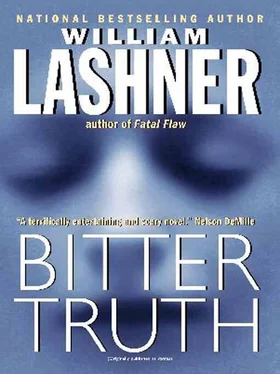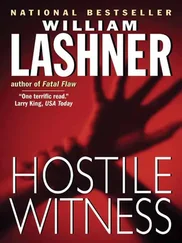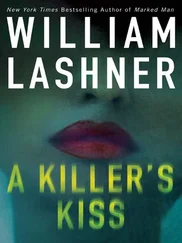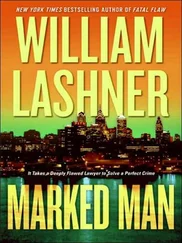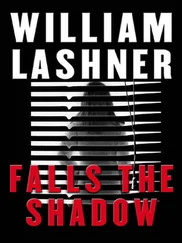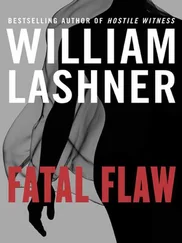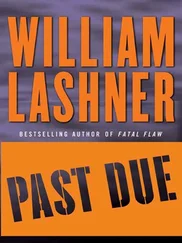“It was the real thing,” he says, finally. “Belize City can be a dangerous place for foreigners, though if those two had not come along I would have set it up much like that the next day.”
“Well, then thank you again for saving me,” I say.
“It was nothing,” says Canek Panti.
I’m not sure exactly when I knew about Canek. I suspected him when he seemed too perfect to be true, precisely the man I had hoped to meet in my quest through Belize. The idea grew when he stayed outside while I went into the Belize Bank branch in San Ignacio, as if he were afraid that the tellers would recognize him as the man making the withdrawals from the account I was so interested in, and it grew even more when he volunteered to be somewhere else while I made my foray into the market at San Ignacio. And when Rudi, the Mayan, spoke of the man who was not a foreigner, with the intricately carved machete, who took supplies to the distant jungle camp, I was certain. I don’t mind it actually, it is comforting that I am on the right track, that I won’t get lost, and that, no matter what happens, Canek will be by my side.
“He’s a murderer,” I say.
“What he did in a foreign land is not my concern.”
“Do you know what he wants with me?”
“No, Victor.”
“You’re not going to let him kill me, are you, Canek?”
“Not if I can help it,” he says.
Just then we round the curve of the bend and I see it, plain as a street sign, the pile of large rocks and the huge cottonwood, its thick walls of roots reaching down to the water. There is a place on the bank that appears a bit worn and Canek heads right toward it. He steps into the water and secures the canoe with the rope around a sapling and then I step out onto solid ground with my heavy black shoes. Despite the heat, I take my suit jacket out of the canoe and put it on. I button the top button of my shirt. The collar rubs against the swelling where the humpbacked botlass fly bit me, but still I tighten my tie. I intend to look as officially benign as an accountant. Is it only wishful thinking that I imagine it harder to kill a man in a suit? I lift out the briefcase and nod to Canek and then follow him as he slashes us a path up from the river and into the jungle.
Branches brush my legs and face as I climb behind Canek Panti. Birds are hooting, bugs are circling my face. Beneath our feet is a path, but the thick green leaves of the rain forest have encroached upon the space we need to move through and we have to swing the leaves away, as if we were swinging away the shutter doors of a Wild West saloon. On and on we go, forward, through the jungle. Canek hacks at vines, I protect my face. Something brutal bites my cheek. I see a small frog leap away, splay-footed, its face and torso daubed with an oxygen-rich red. Then, above the normal calls of the jungle, I hear the humming of a motor, a generator, and then another sound, rhythmic and familiar, shivery and dangerous.
Suddenly, we are at a clearing. There is a long patch of closely mowed grass and atop a slight rise is a cottage, old and wooden and not unlike the Poole house, except that the porch of this cottage is swathed in mosquito netting. It is an incongruous sight in the jungle, this lawn like in any American suburb, this house, gray and weathered, surrounded by perfectly maintained bushes bright with flowers of all different colors.
And there he is, in overalls, a straw hat, with long yellow gloves on his hands, standing in a cloud of tiny yellow butterflies as he holds a pair of clippers from which the rhythmic sound emanates, shivery and silvery, the opening and closing of his metal shears as he clips at a tall thorny bush.
He stops clipping and turns from his task and the eye within the angry red ring squints at me, but not in anger. There is on his face what appears to be a genuine smile.
“Victor,” says Nat, grandson of Elisha Poole and slayer of Reddmans. “Welcome to Belize. I’ve been expecting you.”
Somewhere in the jungle, Cayo, Belize
“IT’S THE FUNGUS IN THE AIRthat does it,” says Nat, as we walk slowly side by side in an ornamental flower garden around the rear of the cottage. There are potted flowers and flowers growing in between piles of rocks and flowers hanging down from rotting tree limbs placed strategically in the ground. “The specialized fungus that feeds the germinating seeds. It’s everywhere in this jungle, in every breath. It’s the life blood of the orchid. Of course, like everything else, my sweethearts need careful pruning to maintain their splendor, but I’ve never been afraid to prune.”
Nat is showing off his collection of exotic orchids. He had grown some on the Reddman estate, he says, in the garden room, where only the most hardy hybrids prospered. But here, in this tropical fungal-infested garden, he can grow anything. His orchids are the true light of his life now, he says, his children. “My collection is priceless,” he says. I don’t comment on the evident ironies. As I take the tour I continue holding onto my briefcase and sweating into my suit. Canek, still with his cowboy hat and machete, trails ten feet behind us.
“The slipper orchid,” Nat says, pointing to a fragile blossom with three pink drooping petals surrounding what looks to be a white lip.
“Very nice,” I say.
“ Masdevallia, ” he says, indicating a bright red flower with three pointed petals.
“Beautiful.”
“ Rossioglossum, ” he says, brushing his fingers lightly along tiger-striped petals surrounding a bright yellow middle, “and Cattleya, ” he says, stroking gently a flower with spotted pink petals surrounding a florid burst of purple, “and Dendrobium nobile, ” he says, leaning his long frame down to smell the obscenely dark center of a perfect violet bloom.
“They’re all amazing,” I say flatly.
“Yes, they are. Here is one of the finest. Disa uniflora, the pride of Table Mountain in South Africa.” He caresses a large scarlet flower with a pale yellowish organ in the middle that more than vaguely resembles a penis, complete with hanging testicles.
I murmur something indicating my admiration but I am horrified by his collection. I have seen an orchid before, sure, I was as miserable as any high school kid at my prom, blowing too much money on the tickets and the limo and the plaid tux and, of course, the corsage, all without any hope of getting laid, but the orchid in my prom corsage was as prim as my date and as far removed from Nat’s blooms as a kitty cat from a saber-toothed tiger. The flowers Nat is growing are beastly things rising out of wild unkempt bushes. Gaudy petals, spotted and furry, drooping arrogant postures, pouty lips, sex organs explicit enough for Larry Flynt, the whole garden is pornographic.
“Acid, Victor. They thrive on acid. Look here.” He points to a tender white and pink flower pushing up from a separate plot in the ground. “This is my absolute favorite. Imported from Australia. Notice, Victor, there are no leaves. This plant stays underground, in secret, feeding only on that marvelous fungus, biding its time until the flower bursts into the open for its own reproductive purposes.”
“I think it’s time we got down to business,” I say.
Nat stops his tour and turns to stare at me, as if I interrupted the most important thing in his world, and then he smiles. “Right you are, Victor. Time for business. I’ll have tea set out for us on the veranda. Excuse me, but I should change.” He abruptly turns away from me and heads into the house through a rear door.
As I start to follow, Canek comes up beside me and gently takes hold of my arm. “I’ll take you around to the veranda,” he says and then he guides me back around the house to the front porch. He pulls away the mosquito netting, creating a gap for us to push through. Beneath a slowly spinning fan there is a table set with plates and cookies. Two seats face each other on opposite sides of the table. Canek pulls out one of the seats for me to sit upon and then he goes into the house, leaving me alone on the porch. The breeze from the fan is refreshing. Down the manicured slope of the lawn I see a long and crowded chicken coop.
Читать дальше
